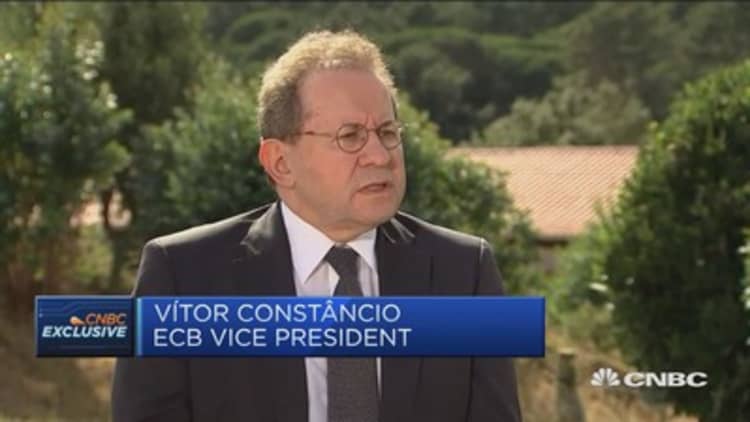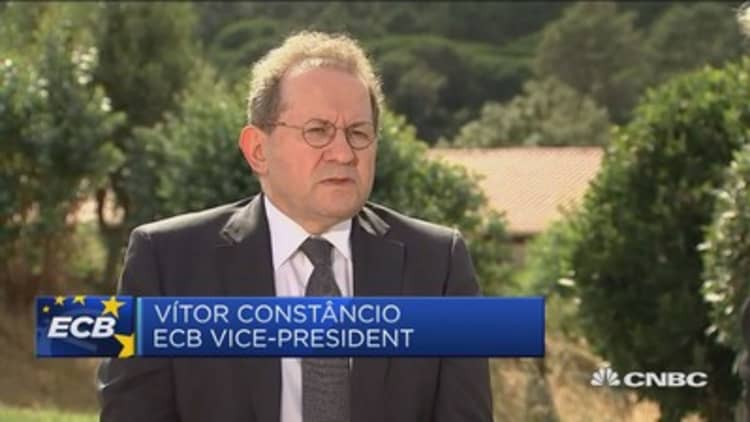
The difference between current and potential levels of output in the euro area economy could be greater than the European Central Bank (ECB) originally thought, its vice president, Vitor Constancio, warned on Tuesday.
"What we see, what we observe is that domestic factors of inflation starting with wage and cost developments and then also price decisions are not responding the way we would expect in view of our more common estimates of this slack. So we have to ask ourselves - are these measures of the slack of the economy correct?," explained Constancio, speaking to CNBC from the ECB Forum on central banking in Sintra.
The board had therefore begun to ask themselves whether other variables should instead be considered to establish a more accurate view of the current economic situation.
"The unemployment rate now is 9.3 (percent) according to the normal international standard of measuring employment …. But if we adopt, as in the U.S., a broader concept of unemployment (which in the U.S. they call U6) then unemployment in the euro area is at 18 percent whereas it is at 9 (percent) in the case of the U.S. which would imply that the slack is then bigger than we could judge some time ago," he noted.
"That being the case it justifies fully what the president (Mario Draghi) said at the end of his speech (on Tuesday) that we need persistence. If we want to bring inflation to our target of below but close to 2 (percent) then we have to persist in the type of monetary policy that we been adopting," he added.
Turning to Monday's controversial use of state aid in the rescue of two Italian banks, Constancio denied that the situation represented any of the parties involved receiving beneficial treatment which flouted existing European Union (EU) rules.
The ECB vice president argued that the case - which saw the Italian state place itself on the hook for up to €17 billion of liabilities concerning the two failing Venetian banks and larger peer Intesa San Paolo taking on the 'good' assets with support and guarantees from the government - had been decided in accordance with the bloc's rules on state aid and bank resolutions.
He proposed that the final solution resembled a 'precautionary recapitalization' situation in which state aid is allowed, according to the ECB's banking supervision laws 'when this is necessary to remedy a serious disturbance in the economy of a Member State and preserve financial stability.'
"It's not much difference from a situation of precautionary recap which is foreseen in the law, it's not an exception, not a special privilege," Constancio contended.

"At the same time, as a result of state aid rules and logic and policy, the overall capacity of the banking sector in Italy went down so there was downsizing, there was restructuring. So indeed everything was applied according to the European legislation," he added.
Constancio went on to refute the suggestion that investors should be prepared for further similar such developments in the Italian banking industry.
"I don't anticipate anything of that sort."



